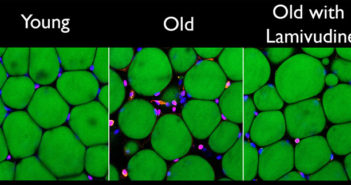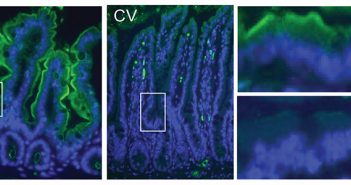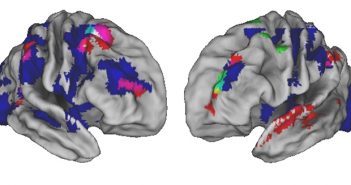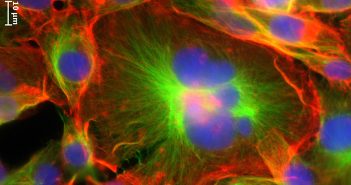
A small clinical trial will look at a novel approach to treating the devastating disease.

A small clinical trial will look at a novel approach to treating the devastating disease.

New center at Butler Hospital will study brain stimulation treatments for PTSD and other illnesses.

New program targets childhood obesity by helping whole families eat healthier.

Female athletes on the Pill are less likely to need surgery after tearing their ACLs.

A med student’s background in nursing informs her award-winning research to help pulmonary embolism patients.

Researchers discover how a member of a family of light-sensitive proteins adjusts skin color.

Unexpected rewards improve memories of specific events, which may have implications for treatment of depression.

MPPB professor studied how mitochondria responded to microgravity stress as part of NASA study of Mark and Scott Kelly.

To combat deadly bloodstream infections, researchers develop a germ-fighting catheter coating.

A ‘mutation hotspot’ allows a common yeast to adapt to different host environments.

Doctor-affiliated PACs fund more political candidates who oppose firearm safety policies, study finds.

Many women made significant contributions to population genetics as programmers but were not recognized as authors.

Research in aging mice suggests HIV medication has potential to treat age-related diseases like Alzheimer’s.

DNA markers in healthy centenarians are more like those of 20-year-olds than 70-year-olds.

Gut bacteria regulate the intestinal immune system by moderating vitamin A levels.

Brown’s Center for Central Nervous System Function to launch new projects, develop new analysis tools.

An EEG-based test could improve patient pain assessments and reduce the over-prescription of opioids.

Regular walking may protect against heart failure after menopause.

With patients’ advice and new tools, a hospital aims to prevent all suicide deaths.

First study on physical properties of polyploidal cancer cells may inform new treatments.

Playing music for patients in palliative care improves their well-being, study finds.